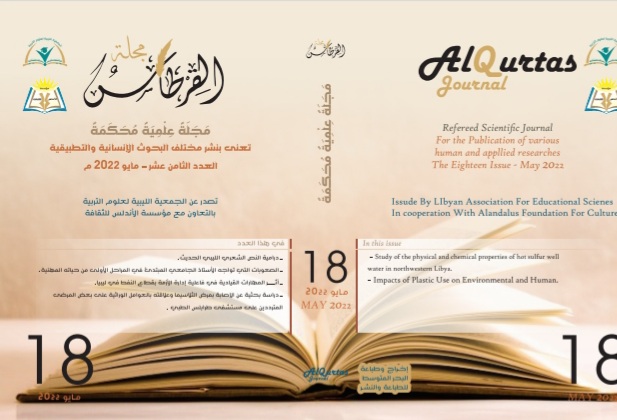دواعي الخطابة وأسبابها في الجاهلية وصدر الإسلام
Main Article Content
Abstract
Perhaps one of the accepted matters is the reliance of the saying on the fact that
the Arabs of the pre-Islamic era were able to elucidate in speech without recording,
and recording what made their matter the basis of their ability as they were the most
memorized nations and the best of them in pronunciation, even though what
remained of it mixed the authentic with the subject, or the narrators have been lenient
in the narration So they made the word another place, or a sentence the place of a
sentence, which made it difficult to judge its correctness by this and we ran away.
To sum up, we arrive at the following conclusions:
1/ Moving away from the illogical transfer that tends to take words without knowing
their meaning, by adopting Arabic dictionaries as a basis for determining the
meaning of the word rhetoric in its linguistic connotation and its idiomatic concept,
and this is followed by old and late dictionaries.
2/ Adopting the clarification based on presenting the reasons for the saying and its
reasons and justifying what was presented by mentioning some examples and
speeches in which we found something that benefits and strengthens the research.
3/ Serious and relentless quest to know the methods and meanings adopted by the
Arabs as they present various types of rhetoric from the pre-Islamic era until the end
of the early days of Islam.
4/ Reaching to link the linguistic and historical aspects by adopting that the
humanities are an integrated unit, especially as it was based on the study of the art
of prose speech among Arabs represented by rhetoric.
5/ In order to be entrusted with realizing the positive aspects of the research, we have
tried to present some examples of sermons, serious about the necessity of a brief
translation of the Messenger, and the Rightly Guided Caliphs after him.

